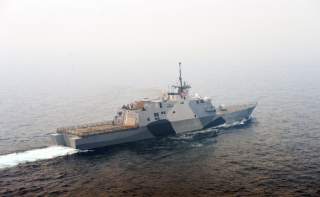China and America's Dueling South China Sea Papers
The timing of these two releases, both in relation to each other and to the next stage of the arbitration case, suggest that policymakers recognize the value of occupying the legal high ground in the South China Sea...
As a next step, the court will ask the Philippine legal team to respond to questions and possible objections regarding its March submission. Those questions will likely cover many of the points raised in China's position paper, among others, since the judges will not rule on such a high-profile and controversial case unless they feel it is airtight.
Once the Philippines responds - a task that will take several months - the judges will consider the questions of jurisdiction and merits in the case. They seem ready to consider both at once, which should speed up the proceedings. There is no set timetable for a decision, and there might be more than one request to the Philippines for clarification of points. But by late 2015, and perhaps earlier, the court should make its decision - potentially the most impactful by any tribunal established under UNCLOS.
Gregory B. Poling is a Fellow with the Sumitro Chair for Southeast Asia Studies at CSIS. Follow him on Twitter @GregPoling. This article originally appeared on the CSIS Asia policy blog, cogitASIA and CSIS PACNET newsletter here.

